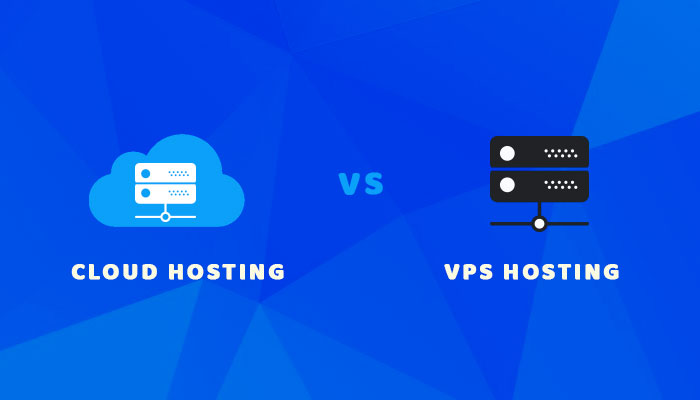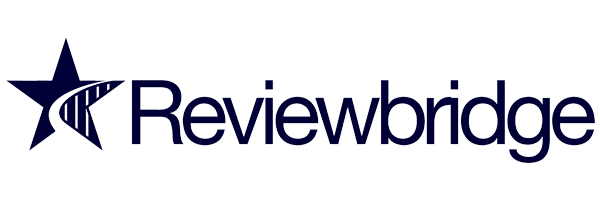Blockchain technology has taken the world by storm. It all started with gaining recognition as the foundation for Bitcoin and many more cryptocurrencies.
But there is so much more to Blockchain.
The potential of blockchain and related technology extends far beyond the realm of digital currencies. It offers a transformative approach to data management and security across various industries.
This blog talks about the exciting new applications of blockchain technology.
What are the impacts of Blockchain on diverse sectors?
What is the potential to reshape the future? And a lot more.
Let us dive in.
Understanding Blockchain Technology
At its core, blockchain is a distributed ledger technology that enables secure, transparent, and tamper-proof record-keeping. It functions like a shared database, where information is stored in chronological order across a network of computers.
This decentralized structure eliminates the need for a central authority, fostering trust and transparency within the system.
What are the Key Features of Blockchain?
- Decentralization: Eliminates the reliance on a single entity for data control and validation.
- Transparency and immutability: All transactions are publicly viewable and cannot be altered once recorded.
- Security: Cryptographic hashing ensures data integrity and prevents unauthorized modification.
How Blockchain Works?
Imagine a digital ledger containing blocks of information.
Each block is linked to the previous one, forming a chain. New information is added by creating a new block, which is cryptographically linked to the previous block and validated by the network.
This process ensures the immutability and security of the data.
The Power of Automation: Smart Contracts in Action
Beyond the realm of cryptocurrencies, blockchain technology unlocks a powerful tool known as smart contracts.
These self-executing agreements reside on the blockchain, automatically enforcing the terms of a contract without the need for intermediaries.
This innovative concept holds immense potential across various industries, revolutionizing how we conduct transactions and build trust in the digital world.
Here’s how smart contracts redefine traditional agreements:
- Enhanced Security: Stored on a distributed ledger, smart contracts are tamper-proof and immutable, ensuring the integrity and security of agreements.
- Increased Efficiency: By automating contract execution, smart contracts eliminate manual processes and human errors, streamlining transactions and reducing costs.
- Reduced Friction: Eliminating the need for intermediaries like lawyers or banks fosters faster and more efficient transactions.
- Transparency and Traceability: All actions within a smart contract are transparent and verifiable on the blockchain, fostering trust and accountability.
Examples of Smart Contract Applications:
- Supply Chain Management: Track the movement of goods, automate payments upon delivery, and ensure product authenticity.
- Financial Services: Facilitate secure and transparent financial transactions, automate loan approvals, and streamline insurance claims.
- Voting Systems: Enable secure and verifiable voting processes, reducing the risk of fraud and manipulation.
- Real Estate: Automate property ownership transfers, escrow payments, and streamline rental agreements.
Smart contracts are still in their early stages of development, but their potential is vast. As the technology matures and regulations evolve, we can expect to see even wider adoption across various sectors, transforming the way we interact, transact, and build trust in the digital age.
Financial Services Beyond Cryptocurrency
While cryptocurrencies showcase the potential of blockchain for financial transactions, its applications extend far beyond:
- Streamlining cross-border payments: Faster, cheaper, and more secure international transactions.
- Enhancing traditional banking operations: Improved efficiency, reduced fraud, and automated processes.
- Revolutionizing trade finance: Secure and transparent trade finance processes with reduced paperwork.
- Tokenization of assets and securities: Fractional ownership and easier access to investment opportunities.
1. Supply Chain and Logistics
Blockchain brings transparency and efficiency to supply chains:
- Increased transparency and traceability: Track the movement of goods from origin to destination, ensuring authenticity and combating counterfeiting.
- Reduced counterfeits and enhanced security: Securely verify the provenance of products and combat counterfeit goods.
2. Healthcare
Blockchain offers solutions for data security and interoperability in healthcare:
- Securing patient data and medical records: Enhance patient privacy and control over their data.
- Enhancing data accuracy and promoting interoperability: Improve data sharing and collaboration among healthcare providers.
- Drug traceability and combating counterfeit medicines: Track the movement of pharmaceuticals and ensure their authenticity.
3. Digital Identity and Security
Blockchain empowers individuals with secure digital identities:
- Creating tamper-proof digital identities: Secure and verifiable identification for individuals and organizations.
- Applications in voting systems and government records: Secure and transparent voting systems and tamper-proof government records.
- The role of blockchain in cybersecurity: Enhanced security measures for data storage and access control.
4. The Energy Sector
Blockchain fosters innovation and efficiency in the energy sector:
- Decentralized energy trading platforms: Enable peer-to-peer energy trading and empower individuals to participate in the energy market.
- Tracking renewable energy generation and certificates: Track the origin and ownership of renewable energy sources.
- Improving grid management and efficiency: Optimize energy distribution and reduce costs.
5. Intellectual Property and Copyright
Blockchain safeguards intellectual property rights:
- Protecting intellectual property rights: Securely register and manage ownership of intellectual property.
- Streamlining royalty payments and distribution: Automate royalty payments and ensure fair distribution to creators.
- Challenges and opportunities in creative industries: Addressing piracy and fostering new revenue models for creators.
6. Real Estate
Blockchain streamlines processes in the real estate industry:
- Simplifying property and land registry processes: Efficient and secure property registration and transfer.
- Enhancing transparency in real estate transactions: Increase transparency and reduce fraud in real estate transactions.
- Tokenization of real estate assets: Fractional ownership and increased liquidity for real estate investments.
Challenges and Considerations
While blockchain technology holds immense promise, it’s crucial to acknowledge the challenges and considerations that must be addressed for its widespread adoption and responsible development.
1. Scalability and performance issues
Scalability and performance pose notable challenges in current blockchain implementations. One key concern lies in limited transaction throughput, as existing systems often struggle to manage the high volume of transactions essential for large-scale applications.
This bottleneck can result in sluggish processing times and elevated transaction fees, hindering the seamless operation of blockchain networks.
Additionally, the distributed nature of blockchain, while ensuring decentralization, introduces substantial data storage requirements.
Storing data across an extensive network of nodes not only raises concerns about security but also contributes to significant scalability limitations, posing hurdles for the efficient scaling of blockchain technology to meet the demands of evolving and expansive use cases.
Addressing these scalability and performance issues is pivotal for unlocking the full potential of blockchain in diverse applications.
2. Regulatory and legal challenges
Establishing clear regulations and legal frameworks for blockchain applications.
- Unclear legal frameworks: The regulatory landscape surrounding blockchain technology is still evolving, creating uncertainty for businesses and hindering widespread adoption. Issues like token classification, smart contract liability, and data privacy require clear legal frameworks to ensure responsible development and user protection.
- Compliance challenges: Integrating blockchain technology with existing regulatory frameworks can be complex, requiring businesses to navigate compliance hurdles and adapt their operations accordingly.
3. Environmental concerns of blockchain technology
Addressing the energy consumption associated with certain blockchain implementations.
- Energy consumption: Proof-of-work consensus mechanisms, used by some blockchains, require significant computational power, leading to high energy consumption and raising environmental concerns.
Exploring alternative consensus mechanisms with lower energy footprints is crucial for sustainable blockchain development.
Future Perspectives in Blockchain
The trajectory of blockchain technology is poised for an exciting future, marked by a multitude of possibilities:
- Emerging Trends in Applications – The landscape of blockchain applications is continuously evolving, with groundbreaking trends such as decentralized finance (DeFi) and non-fungible tokens (NFTs) taking center stage. The innovative use of blockchain is not merely confined to cryptocurrencies but extends to revolutionize various sectors through decentralized and transparent solutions.
- Societal Impact and Transformation – Beyond its technical prowess, blockchain holds the potential to profoundly impact and transform societies. By fostering secure, transparent, and efficient systems, blockchain technology becomes a catalyst for positive change across industries. Its influence is not just limited to the financial sector but extends to healthcare, supply chain, and governance, promising a future marked by increased accountability and reduced inefficiencies.
- Importance of Stakeholder Collaboration – The responsible development and widespread adoption of blockchain hinge on robust collaboration between key stakeholders. Governments, businesses, and individuals must join forces to create an ecosystem that fosters ethical practices, regulatory frameworks, and user-friendly implementations.
This collaborative approach ensures that blockchain evolves in a sustainable manner, addressing concerns and maximizing its positive impact on society.
Conclusion
Blockchain technology stands at a pivotal juncture, poised to revolutionize various industries and reshape the way we interact with data. As we navigate the challenges and harness its potential, collaboration between stakeholders is essential to ensure responsible development and widespread adoption. By fostering transparency, security, and efficiency, blockchain has the potential to create a more secure, equitable, and interconnected future for all. Embracing this evolution requires a collective commitment to innovation, ethical practices, and the continuous exploration of blockchain’s vast possibilities, laying the foundation for a dynamic and transformative digital era.
FAQ:
What is blockchain technology?
Blockchain is a distributed ledger technology that enables secure, transparent, and tamper-proof record-keeping.
How is blockchain used in supply chain management?
Blockchain tracks the movement of goods from origin to destination, ensuring authenticity and combating counterfeiting.
Can blockchain be hacked?
While blockchain is inherently secure, vulnerabilities can exist in individual implementations. Continuous security measures are crucial.
What industries can benefit from blockchain?
Finance, healthcare, supply chain, energy, intellectual property, real estate, and many more.
How does blockchain improve security?
Decentralization, cryptography, and immutability of data enhance security and prevent unauthorized modifications.
What is the future of blockchain technology?
The future holds immense potential for innovative applications across diverse sectors, with the potential to transform our society.






